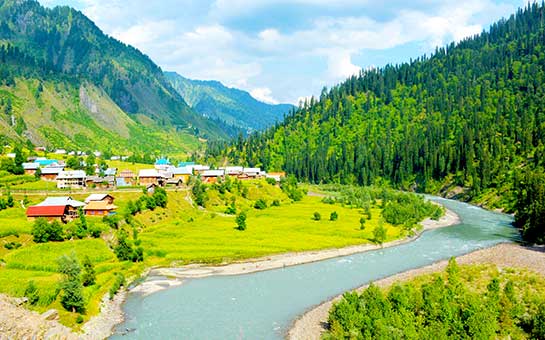Pakistan is quickly becoming a must-visit destination for travelers around the world. It is a treasure trove of little-used trekking trails, breathtaking natural wonders, and architectural gems. Despite political tension and instability, it offers you some of the most enchanted lands to marvel at, from the snow-capped mountains to the ancient Mughal city of Lahore. The country offers diverse natural beauty and architectural splendor.
Those daring enough to visit Pakistan are richly rewarded. The mix of culinary traditions, varied wildlife, and friendly inhabitants is excellent. Experience the life outdoors as you hike to mountains and go on a trail through the world’s highest passes. But before you go, make sure to purchase travel medical insurance to stay prepared against any unexpected accidents, illnesses, or injuries.
Pakistan Travel Medical Insurance for International Travelers - FAQs
Apart from the major cities and the outlying areas, healthcare and hospitals are very basic. As most of the travel destinations are far away, you might need coverage for repatriation and medical evacuation, too. Buy travel medical insurance for Pakistan, as you may need certain facilities that would be very costly if you had to pay out of your own pocket.
Do I need travel medical insurance for Pakistan?
Pakistan no longer requires visitors to have travel medical insurance, but it is highly recommended for any international traveler entering the country.
Why buy travel medical insurance for Pakistan?
If you fall sick in the unpopulated areas, there aren’t many hospitals to offer treatment, and you would have to be airlifted as an ambulance would take forever to reach you. And if your condition was severe enough, you would have to be medically evacuated out of Pakistan to either a nearby medical center or to your home country. As hospitals and treatments are costly in the cities, buy travel medical insurance to stay afloat your financial situation.
Things to Do for Travelers in Pakistan
- Recluse at Hunza Valley: The Hunza Valley is Pakistan’s Shangri-La and is a beautiful place to visit. It is a land of abundant orchards, burbling streams, and a pocket of verdant green among towering mountains. Hunza is a popular destination among travelers who want to trail through the Karakoram Highway. The jaw-dropping scenery of the place is second to none.
- Boat Ride on Saiful Muluk Lake: The beguiling green Saiful Muluk Lake sits at 3,200 meters (about 10,500 feet) above sea level and is the highest alpine lake in Pakistan. The lake is surrounded by snow-capped mountains and lush green foothills that add to the beauty of the place. Ride a horse along the shores, fish for trout, and boat on the lake to experience the magic of Saiful Muluk.
- Trek to Nanga Parbat: Trekking to the dairy meadows of Nanga Parbat is an amazing and thrilling adventure. The base camp lies in Himalayan Pakistan and is the best trek in the country, hands down. Explore the various trails, the trek to Beyal, and an evening at the Greenland Resort. Expect to be treated to sights of glaciers, forests, and snow-capped mountains along the way.
- Roam the Ruins of Mohenjo-Daro: One of the world’s earliest cities, Mohenjo-Daro was built way back in 2500 BC. The site is laid out in a well-planned grid and has the ruins of a sophisticated drainage system. The ruins of the city have a large number of bathing pools and water towers that catapult you back into ancient history.
- Visit Wagah-Attari Border: The border skirmishes between India and Pakistan are very common, and a chance of serious conflict is real. But at 5 p.m. every evening, the border forces of both countries participate in an elaborate flag-lowering ceremony. The elaborated uniform and “dance-off” are a spectator’s delight and should be witnessed if you’re traveling for the first time.
Travel Risks for International Travelers in Pakistan
- Terrorism: There is a threat of terrorist attacks in certain places. Try to avoid visiting far-flung areas and stick to the beaten tracks that are well-protected and policed.
- Altitude sickness: In destinations elevated above 3,000 meters (a little less than 10,000 feet), altitude sickness is a real peril and carries heavy risk. Headaches, nausea, and vomiting are the common symptoms of this disease and may require medical treatment at times. Ascend slowly, avoid alcohol, and keep yourself hydrated when visiting places in the high mountains.
- Military action: The Pakistani military is regularly conducting operations against militant groups within the country. These operations can take a violent turn in no time and may end up taking innocent lives in the crossfire. Follow the advice of the authorities in the event of such activities.
- Diseases: Hepatitis A & B, Japanese B encephalitis, and tuberculosis are common diseases in the country and may require you to get a vaccine on arrival. Pakistan has also reported several mosquito-borne viral diseases like chikungunya and dengue fever.
Before You Travel to Pakistan – Do This
- The Pakistani military is very cautious and requires you to carry copies of your passport and other identification at all times for security reasons.
- Pack and use insect repellent, as mosquitoes are considered to be very dangerous
- Check with the Embassy about any special requirements and vaccine certificates needed 12 weeks before arrival.

